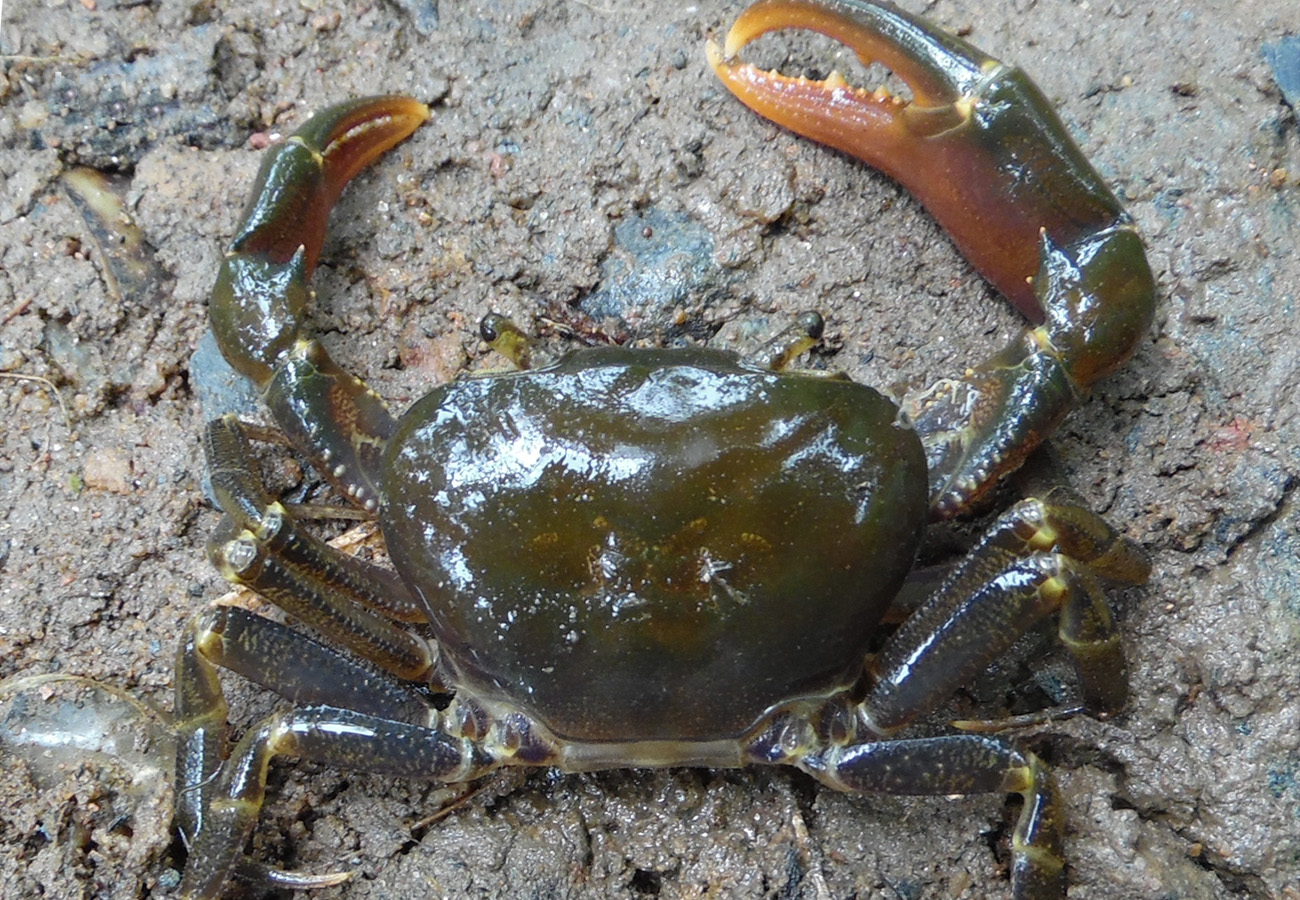Louisea edeansis is an unassuming freshwater crab, as far as freshwater crabs go, of average size with a dull brown-orange hue. This endangered species lives in southern Cameroon, and was first described in the early 1900s. Some presumed it to be extinct, as it hadn’t been seen since then – until Pierre Armand Mvogo-Ndongo took his CARN-funded field expedition to southern Cameroon’s Lake Ossa, and found the first Louisea edeansis seen in 100 years.
Mvogo-Ndongo, a PhD student at the University of Yaoundé, focused his 2015 CARN research on surveying crab and shrimp populations in four wetland ecosystems in Cameroon. The study was prompted by ongoing threats to crustaceans in the country: deforestation, intensive agricultural practices, and changes to water flows.
He collected specimens from five different crab species and six different shrimp species, and extracted genetic data to build phylogenetic trees for both groups of specimens. During his field work, Mvogo-Ndongo also discovered an entirely new species of crab, in the genus Sudanonautes, which lives in the tropical rainforests of southern Cameroon. He has published multiple articles on these discoveries (and re-discoveries). Mvogo-Ndono’s research sheds light on the population structure, habitat requirements and distributional range of Cameron’s crab and shrimp species – work that has important implications for conservation of these often rare and endangered animals.
